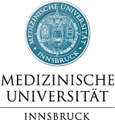Dienstag, 14.11.2023 bis Freitag, 17.11.2023
Entanglement and Globalization in Ancient Worlds
09:00 - 17:00 Uhr
Claudiana Innsbruck, Herzog-Friedrich-Straße 3, 6020 Innsbruck
Anmeldung ist nicht erforderlich
Eintritt / Kosten: [Keine]
Vortragende/r
Turri, Schwarz, Juárez Cossío, Fellner, Dan, Stevens, Burkhardt
Luigi Turri (Verona), Jörg Schwarz (Innsbruck), Héctor Daniel Juárez Cossío (Mexico City), Hannes Fellner (Wien), Anca Dan (Paris), Kathryn Stevens (Oxford), Julia Burkhardt (München)
Weitere Informationen
Michael Scott’s critique on the superficiality of the equation “the ancient world” = Mediterranean reveals a major methodological problem of contemporary research in ancient history. On the one hand there is an ever growing acceptance of various degrees of interconnectedness as driving forces of historical processes, on the other hand a lack of scholarly accounts that not only mention such forms of connectivity but describe and explain them. A plethora of books with titles like “... in the ancient world” tackling their specific subjects more or less exclusively from a Graeco-Roman perspective, aptly document a scholarly approach that is ultimately hindered by (over)institutionalized scholarly disciplines and—in the worst case—unreflected cultural bias. Furthermore, this ever growing abundance of books seems to suggest that the ancient world not only ends a few hundred kilometers going up country from the mediterranean, it also forces this “world” into quite narrow chronological boundaries. Therefore, longue durée processes that might encompass the Ancient Near East and Egypt, as well as Late Antique and Medieval Eurasia doesn’t seem to have a place in this ancient world.
Particularly in the light of methodological developments in modern social sciences during the last several decades—subsumable under the heading “global turn” —such an understanding of the ancient world is revealed as a strongly misleading pars pro toto approach of little scientific value that needs to be overcome. The Autumn School Entanglement and Globalization in Ancient Worlds seeks to work on this overcoming with recourse to the well known concepts of entanglement and globalization.
In his seminal study on the history of sugar consumption, Sidney Mintz used the word entanglement to describe how a singular comestible closely interlocked Caribbean and European worlds at the dawn of the modern era. Today the concept of entanglement is not only a staple in the thriving field of so called “global history” , phenomena of entanglement keep being detected always further back in time.
In contrast to that, the term globalization is used only reluctantly to describe historical phenomena before c.1000 BCE albeit a quite broadly defined and therefore easily extendable concept of “archaic globalization” exists. This is especially striking since the theory of globalization uses a variety of quite clearly defined heuristic means—e.g. hybridization, variability, glocalization, grobalization etc. —that seem, predestined for description and explanation of all kinds of connectivity through the ages.
The Autumn School Entanglement and Globalization in Ancient Worlds aims at exploring and explaining the different uses of entanglement and globalization outlined above by means of various case studies and theoretical considerations. This joint scholarly endeavour will shed further light on the heuristic value and applicability of said terms to further clarify a preception of an ancient world that goes beyond conscious or unconscious compartmentalisation.
Veranstalter
Clemens Steinwender
Alexander Steiner
Florian Posselt
Jessika Armbrüster
Noah Kröll

